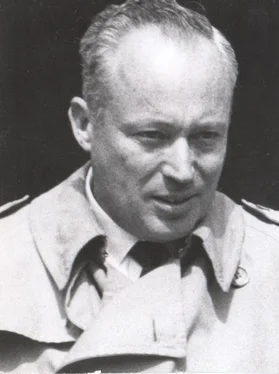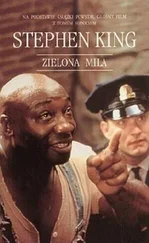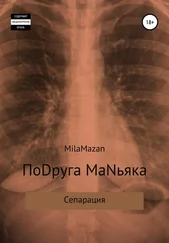Deborah stepped into the big wide world too fast. She was completely without sophistication or experience in that game of boys and girls. She was swept off her feet. With shattering accuracy, Momma’s dire prediction came true. She was pregnant.
“I love you very much,” Paul said. “I want you to become Mrs. Paul Bronski.”
“I think I would die if you didn’t want me.”
“Not want you? Deborah ... dear ... only—now, we must do something about your pregnancy.”
“What—”
“I know this will be difficult for you, but our future depends on it. We are going to have to give you an abortion.”
“Paul ... take our baby ...”
“Dear, you’re eighteen years old. You are one of my students. Think of what kind of scandal there will be if you are married in your condition. Not only the shame for you and your family, it would ruin my career.”
“But ... an abortion ...”
“It will be done carefully—and don’t worry. We will have children, lots of them.”
The result mired her deep in guilt. Momma was right. Sex was ugly and painful. Her deep religious roots made her bear losing the child as a penance for her sin. She married Paul Bronski and became to him all the things he wished. She was the perfect mother and the clever hostess and she filled his needs as a man.
But it was in darkness in their bed that she served her sentence. The guilt of the sex act was deeply embedded, and she practiced the discipline of pretending to enjoy in order not to offend her husband. She experienced neither fulfillment nor the smaller pleasures of love-making. She was entirely frigid.
What strange and wonderful thing was it that drew her to Christopher de Monti? He took her hand as though she were a little girl and led her through the black evil forest to the golden castle that sat on a cloud.
There was that first frightening time they were alone in his apartment and everything between them that had gone before had led to the moment when a man and a woman have nowhere left to go in their relationship but to bed.
She threw an angry tantrum over a seeming trifle. Chris completely understood that she was in reality angry with herself over her fear of an inability to perform.
So many times Chris held her face in his hands.
“Deborah, my love ... your mother is dead. You are not going to disobey her by letting yourself have the pleasure of a normal woman.”
And all the years of frustration burst out when Chris unlocked them and drove them from her.
“I didn’t know ... I didn’t know it could be like this.”
Deborah blinked her eyes open. The fire was in embers. Chris was rattling around in the kitchen. She looked at her watch. It was very late. He came in, rumpled and smiling, wearing a battered old pair of khaki trousers and holding two cups of coffee.
As wild and wonderful a woman as she had been, Chris watched her change into someone else before his eyes. She fumbled for the telephone and dialed in a nervous, jerky manner. “Hello, Rachael. This is Momma. Darling, I’m sorry I didn’t call you. I got held up. Did Zoshia make you a good dinner? Practice your piano, darling. Tell Stephan I’ll be home in a little while.”
She set the phone down slowly. Chris offered her coffee. She shook her head, avoiding his eyes, and walked away quickly toward her clothing.
“Do we have to play out another remorse-filled scene?”
“Don’t.”
“But I do—”
“I woke up just now with a terrible start. It is terribly clear that we have done something sinful in the way we have lived. I know we are going to be punished—”
The phone rang.
“It’s me, Rosy.”
“Yes, Rosy.”
“You’d better get down here, right away.”
“What’s up?”
“Everything out of Berlin has stopped cold. I called Switzerland. They say all the lines from Germany have been cut at the Polish border.”
Chapter Ten
August 31, 1939
TO: COMMANDER, COMPANY A, Reinforced
From: Commander, 7th Ulany Mounted Brigade—Grudziadz
Subject: Patrol Assignment
Proceed north on the Tczew road at 0700. A special detachment of intelligence scouts has been detailed to your command for the purpose of detecting unusual movements, changes of disposition, or additions of strength to the German Third Army.
Send reports to us by rider in a routine manner.
When you reach Tczew, join your battalion and continue with them to Gdynia.
No later than 0600 tomorrow you will encounter Company B coming from Tczew in a patrol which will be the reverse of yours. Send your dispatch with them.
It is emphasized that we are at peace with Germany and an unprovoked incident could have serious repercussions. However, under extraordinary circumstances you are authorized to use your judgment.
Signed: Zygmunt Bozakolski, Brigadier in Command, 7th Ulany Mounted Brigade—Grudziadz.
Captain Andrei Androfski moved Company A out of the large headquarters base at Grudziadz at 0700. It was scheduled as a routine patrol that called for a two-day ride along the eastern border of the Polish Corridor, along a road that ran parallel to German East Prussia. He was to meet another company of his battalion the following morning. For several weeks his brigade had been engaged in these roving patrols covering the area from the Baltic port city of Gdynia to the Grudziadz base. The patrols had been singularly dull and uneventful.
The late-summer day in Pomerania was warmish, and as Company A galloped north they were completely detached from the frantic business taking place in Berlin several hundred kilometers away. The land was green and quiet and, as soldiers do, they looked forward to a blowout in Gdynia.
Berlin, Germany: August 31, 1939
Sir Nevile Henderson, the British Foreign Minister, asked for and received a list of demands from the German Chancellery upon which war could be averted. The demands were read to him in a quick unintelligible language. He then demanded to see them in writing. They did not come.
The Germans, instead, demanded direct negotiations with the Polish peace mission upon terms the Poles did not know.
The Polish mission was not authorized to take on a direct negotiation. In last-ditch desperation Sir Nevile Henderson pleaded with the Poles to get authorization from Warsaw. The Poles attempted to comply, but when they tried to telephone their capital they discovered the phone lines had been cut.
Sir Nevile Henderson, raw-nerved from the tension and lack of sleep, angrily demanded to know why the lines were down. The Germans answered that it was the work of Polish bandits, furthering the already “intolerable” situation and “proving the Poles wanted war.”
Berlin was white-hot with war fever. The population was barraged with tales of Polish attacks along the border, of Polish aircraft firing on German commercial planes flying over the corridor, of Poles committing murder and atrocities against “innocent German ethnic families,” of Polish mobilization, and of Polish war hysteria.
By the evening of August 31, Captain Androfski’s company had made an uneventful ride along the Polish-Prussian border. They came to a halt for the day opposite the German town of Marienwerder, setting up a bivouac in a small woods a few hundred meters from the road. After the evening meal, it turned dark. Normal security was established, then Captain Androfski called together the special detachment of intelligence scouts who had been assigned to him.
In addition to the routine patrol orders, Andrei had also received verbal orders from the brigade intelligence commander concerning the German massing of armor along the corridor in that area, and Andrei’s patrol carried the secondary purpose of scouting it. The special detachment of ten men, dressed as civilians, crossed unarmed into Germany with instructions to circle the Marienwerder area during the night and return to camp before dawn. Their observations would be assessed and the data given to Company B.
Читать дальше












